








MIDWEEK UPDATE 16 MAY 2018Plan Your Weekend……..Forthcoming Events…….Aviation News Worldwide Incidents and Accidents……This Week in Aviation History  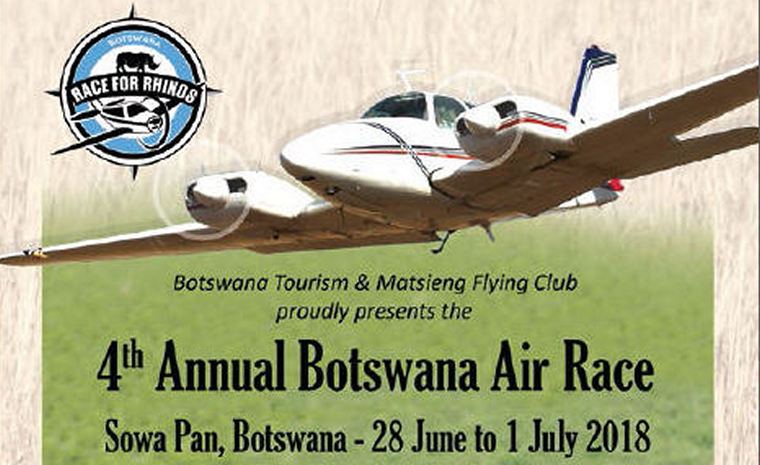 19: Panorama Breakfast Fly in. Contact Alan 083 702 3680 or David 082 375 5614. 19 & 20: SAC Free State Regionals Tempe airport Bloemfontein. Contact Annie Boon E-mail: chunge@mweb.co.za   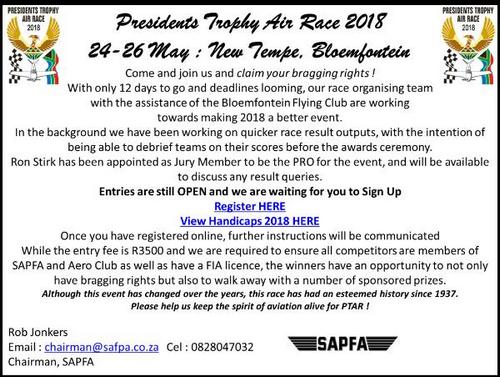 24 - 26: SAPFA President's Air Race Tempe, Bloemfontein. Rob Jonkers chairman@sapfa.co.za 082 855 9435. Website: www.sapfa.org.za E-mail: Race@sapfa.org.za. Race director Robin Spencer-Scarr: E-mail: robin@stylegroup.com.au. 26: Balito Microlight Fly in. Contact Brad Mears brad@hsinvest.co.za 26: Matsieng Airshow. Contact Riaan van Vuuren E-mail: riaan@gir.co.bw Tel: +26 771 66 1201  2: SAAF Museum AFB Zwartkop open practise day. Officer Commanding - Museum oc@saafmuseum.org.za 012 351 2290 2: Kroon Fly in. Rosslyn Micro Flyers. Breakfast R50.00. Contact Dawie 082 596 2355 or Marius 083 419 6613. 6: EAA Chapter 322 meeting. Dicky Fritz Moth Hall Edenvale. Contact: editor@afskies.co.za  9: Bethlehem Fun Rally - Bethlehem Airfield. Contact Rob Jonkers e-mail: rob@aerosud.co.za Cell:082 804 7032 16: Brakpan Aero Club. Cessna Fly in. Attempt to have the most Cessnas on a South African airfield. For more information contact: 071 5422 993 23: Reefsteamers NPC- Krugersdorp Flying Club - Vintage and Veteran Car Club 23 June 2018 event. RS Train -vintage planes, cars and bikes. Contact Ian Morison imorison@worldonline.co.za 3rd Saturday of every month. Microland. Bring and braai. Fires and bykos provided. Fires start from 09h30. Contact person: Nick Swardt 082 441 8011 or Alan Hussey 072 82 2341 24-28: South African Hot Air Balloon Championships 2018, Skeerpoort North West Province. Contact Richard Bovell richard@bovellross.com 28 June- 1 July: Race for Rhinos - Kuba Island - Botswana. Contact Chris Briers e-mail: chris@airteam.co.za cell: 082 568 7988  4: EAA Chapter 322 meeting. Dicky Fritz Moth Hall Edenvale. Contact: editor@afskies.co.za 6-10: Zim Navex - Prince Charles Airport - Harare. Marion Kalweit - 2017 Air Rally Committee email: zimairrally@gmail.com Tel +263772570009 8: SAAF Museum AFB Zwartkop open practise day. Officer Commanding - Museum oc@saafmuseum.org.za 012 351 2290 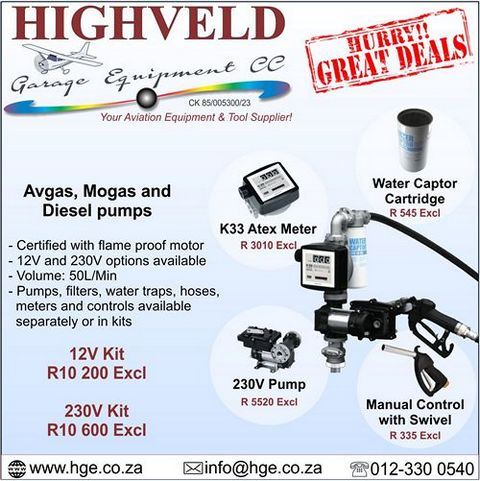 14: SAC Judges Trophy. Kitty Hawk. Contact Annie Boon chunge@mweb.co.za 14: Hoedspruit Fun Rally. Contact Wynand Uys email: wynand@ottersden.co.za or Frank Eckard e-mail: frank.eckard@mweb.co.za cell: 083 269 1516 21: Krugersdorp Flying Club Airfield Festival and spot landing competition. Contact kfc@iafrica.com or phone 082 374 5559 3rd Saturday of every month. Microland. Bring and braai. Fires and bykos provided. Fires start from 09h30. Contact person: Nick Swardt 082 441 8011 or Alan Hussey 072 82 2341 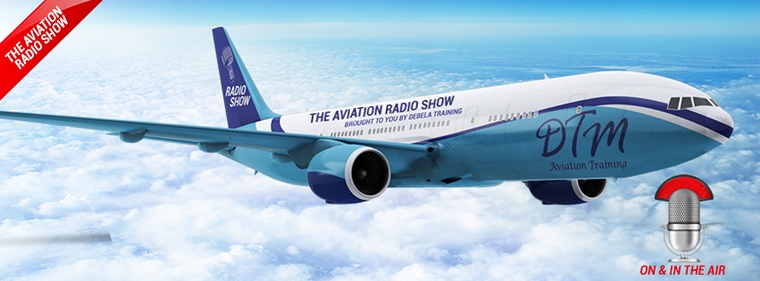 The Aviation Radio Show; get all your questions answered in one place. To listen to a recording of the live broadcast click on the link: www.debela.co.za/aviation-radio-show  PSG INSURE ACQUIRED AIRBORNE INSURANCE CONSULTANTS 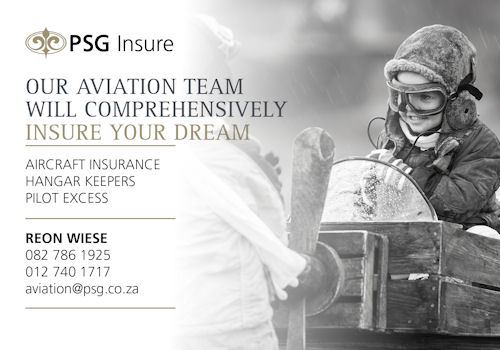 On 1 May 2018, PSG Insure acquired Airborne Insurance Consultants, Africa's fastest-growing independent aviation insurance specialists. PSG Insure's aviation division, under the management of Reon Wiese, forms part of PSG Konsult, which is listed on the Johannesburg and Namibia stock exchanges. It is made up of a team of specialised aviation insurance brokers with more than 100 years combined insurance experience. The move positions PSG Insure as one of the biggest aviation insurance brokerages in South Africa, and the only one that offers a full-service offering across all classes of short-term insurance (commercial and personal lines). "This is an exciting and mutually beneficial association for our business," said Scott Smith, managing director of Airborne Insurance Consultants. "PSG offers a comprehensive range of products to meet a full suite of client needs and has established relationships with respected product providers. It also offers the benefit of an influential brand, watertight legal and compliance infrastructure, and technological capabilities," said Smith. For PSG, the Airborne Insurance team brings significant aviation insurance experience and a substantial client footprint across Africa and South Africa. The move has increased the number of aircraft owners insured through PSG to over 1000. "This increased scale will allow us to access better products and better premiums for our clients," said Wiese. "The Airborne team also brings valuable expertise with the London insurance market, and we'll be able to tap into that to enhance our offering to clients." OSHKOSH 2018- A PREVIEW SONACA AIRCRAFT UNVEILED THE SONACA 200 AT THE AERO FRIEDRICHSHAFEN  The Sonaca 200 has completed the flight tests program and is about to be EASA certified in the CSVLA Category Photo © Sonaca. 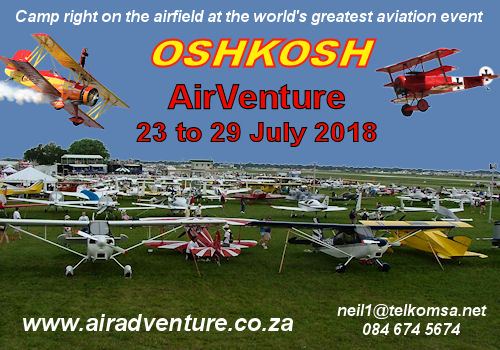 Sonaca Aircraft now only needs the Type Certificate, which certifies that the aircraft, by its type definition, meets the airworthiness technical characteristics in every aspect. The Type Certificate comes with the Type Certificate Data Sheet which defines the product and its characteristics. "Thanks to this new certification, Sonaca Aircraft will now be authorized to fly the Sonaca 200 both in Europe and in the rest of the world under the European Airworthiness Certificate," said Carl Mengdehl, Head of Engineering and Co-Founder at Sonaca Aircraft. SUREFLY'S HYBRID ELECTRIC OCTOCOPTER DRONE ACHIEVES FIRST MANNED FLIGHT 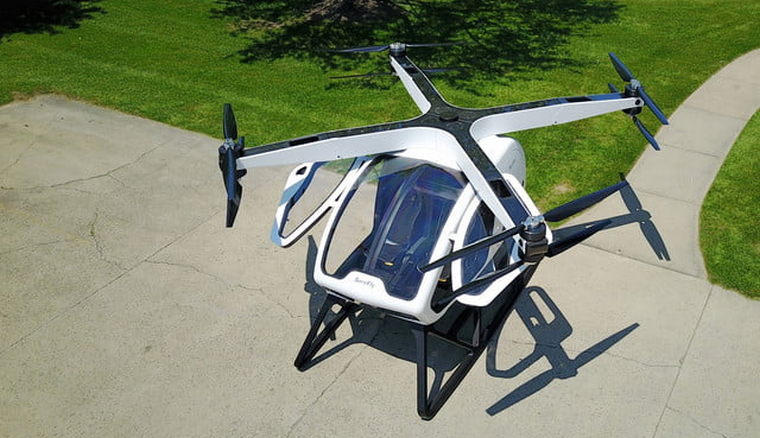 The hybrid two-seat helicopter SureFly from the electric truck company Workhorse made it off the ground this week. Photo © Surefly. "People want to have something in their garage to take out and fly," SureFly CEO Steve Burns said in a call Friday afternoon. "We're trying to make it safer than driving your car to the same destination." 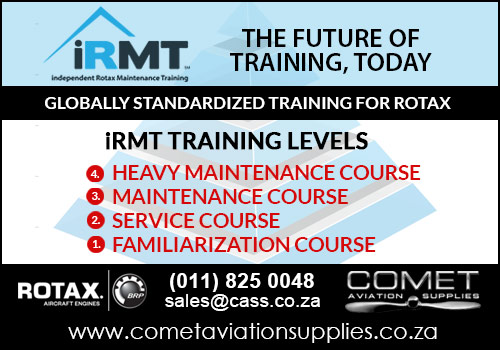 For Burns his passenger drone could compete with Uber's electric air taxi concept, along with many mainstream aviation companies' VTOL efforts, but it could also be a tool for a farmer, a commuter, or a paramedic. He said his company decided to move away from an all-electric craft after studying lithium-ion batteries from the company's electric trucks. "We didn't think an all-electric craft was ready for prime time yet," he said. Most air taxis are developing an electric powered vehicle. Burns is well aware that VTOL air taxis are racing to be the first to fly passenger's short distances. Even if the craft only made it 5 feet above ground, he said the hover is as significant as hovering 500 feet as it requires the same tech, mechanisms, and effort. 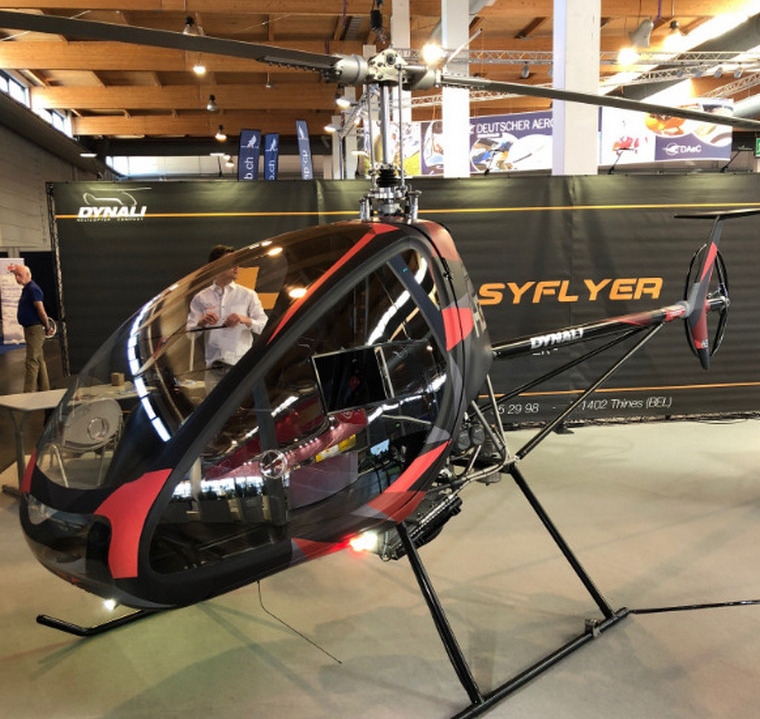 Dynali's H3 Easyflyer was an attention grabber at the Friedrichshafen event AERO 2018. Photo © Dynali. With serial numbers 70 to 75 now in production and H3's flying on three continents, this little side by side two seater is now well established as a leader in the microlight helicopter world. Most UL flight schools now use the H3 as their training ultralight helicopter due to its interesting specification and costs. Textron debuted its production-standard Scorpion light strike and ISR aircraft at the recent Dubai Airshow to show off its advantages to governments in the region. Acquisition cost is approximately $20 million dollars, and direct operating costs amount to only some $3000 per hour. Brett Pierson, a test pilot for Textron, explained the aircraft's value proposition. ROSTEC TO CREATE VRT500 PROTOTYPE BY THE END OF 2019 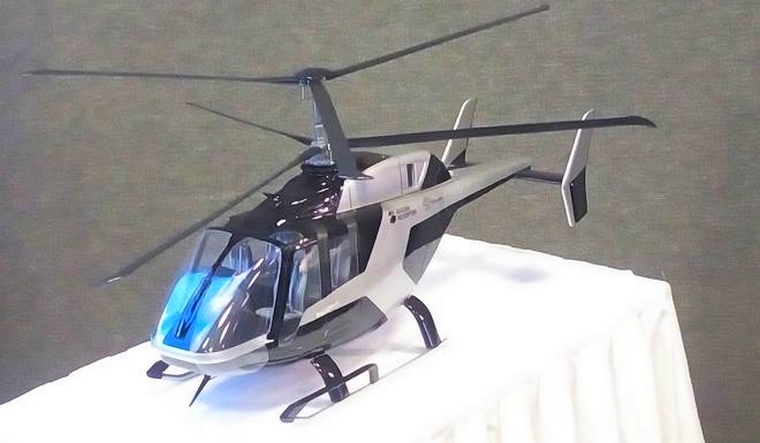 Russian Helicopters (part of Rostec State Corporation) will produce a light utility helicopter prototype, VRT500, designed by VR-Technologies design bureau, by the end of 2019. Photo © Rostec.  According to him, about 30% of supply would be destined to the countries of Latin America and the Caribbean and about 15% would be sent to North America, Asia-Pacific region, Europe, Russia and CIS. VRT500 is a light single-engine helicopter with coaxial rotor scheme and 1600 kg take-off weight. This helicopter will feature the most spacious transport and cargo cabin in its class with a total capacity of up to 5 persons, and will be equipped with the state-of-the art glass cockpit avionics suite. With improved performance characteristics this helicopter will be capable of accelerating up to 230 km/h and will achieve a range of up to 1000 km and payload of up to 750 kg. AIRBUS HELICOPTERS DELIVERS 200TH H145 HELICOPTER TO NORSK LUFTAMBULANSE 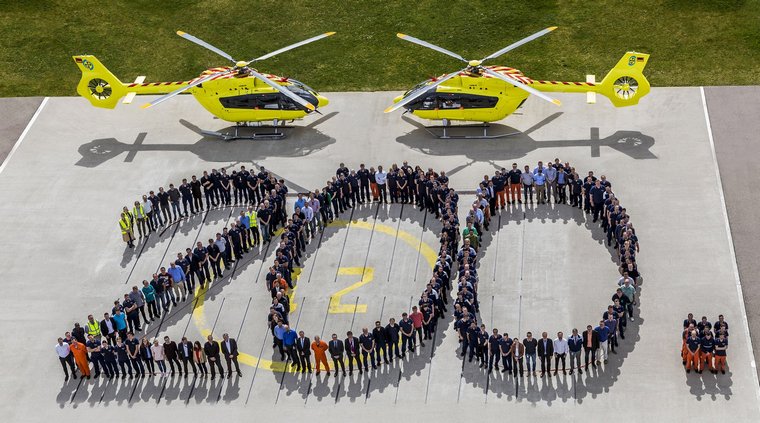 Last week, Airbus Helicopters delivered the 200th H145 to Norsk Luftambulanse (NOLAS). The Air Rescue Operator will use the helicopter for Helicopter Emergency Medical Services (HEMS) in Norway. Photo © Airbus.  The entire H145 family (H145, EC145 and BK117) has accumulated more than five million flight hours, with more than 1,400 helicopters delivered to date. The H145 is the most advanced member of Airbus Helicopters' multi-purpose twin-engine category. Thanks to its compact size, large and flexible cabin which is quickly and easily reconfigurable, lowest maintenance costs in its class, powerful engines and the latest Helionix avionic suite with four-axis-autopilot, the H145 is the aircraft of choice for high intensity operations across the widest range of missions (including military, law enforcement, HEMS, utility and including business aviation).  Brazil, off Rio de Janeiro: A Bell 206B JetRanger III operated by Mapa Empreendimentos e Participações Ltda with four on board crashed into the sea under unknown circumstances. The pilot died, 3 other occupants were injured. USA, Denver: A Delta Airlines McDonnell Douglas MD-90 with 153 people on board had safely landed on Denver's runway 35R and was taxiing to the apron when the crew alerted ground control that they had a fire on board. The aircraft stopped on the taxiway and was evacuated via slides through all (including over wing) exits. A number of people received minor injuries as result of the evacuation; one person was taken to a hospital. The source of the smoke was later found to be caused by a hydraulic leak onto the Auxiliary Power Unit (APU). Brazil, Gavião Peixoto Airport: The Embraer KC-390 aircraft prototype suffered a runway excursion accident during a ground test at Gavião Peixoto Airport, Brazil. The KC-390 travelled about 260 m past the end of runway 20. Embraer reported that extensive damage was identified on each of the three landing gear of the aircraft, as well as damage to the structure of the fuselage. This same aircraft suffered an incident on 17 October 2017 when it had an uncommanded extremely rapid descent of 4500 ft/min from 20000 ft to 3100 ft. Ireland, NW of Clonbullogue Aerodrome: A Cessna 208B Grand Caravan operating for the Irish Parachute Club impacted a bog and woodland terrain subsequent to a successful skydiving jump by 16 of the occupants onboard. The airplane sustained unreported damage and the two remaining occupants onboard received serious injuries. 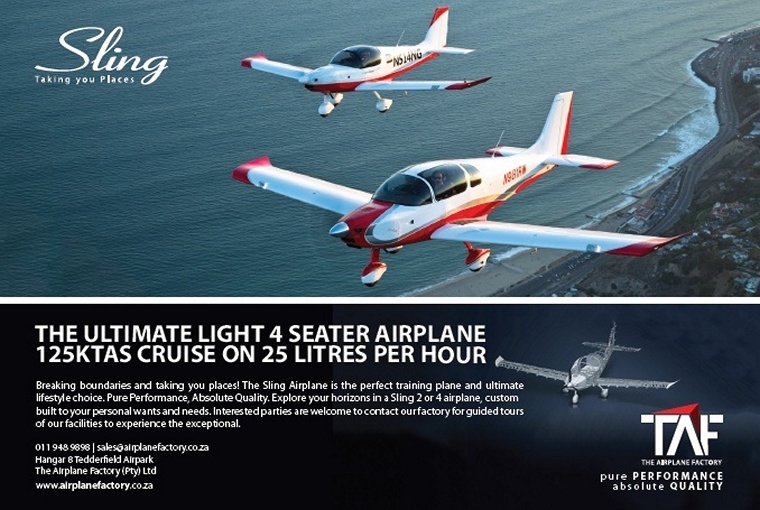  Kiffin Yates Rockwell is the first American to claim an air victory for the U.S. Military.  At the outbreak of World War I, on August 3, 1914, Kiffin Rockwell offered his services to France by letter, which he wrote with his brother Paul, to the French Consul-General in New Orleans. Without waiting for a reply, the Rockwell brothers boarded SS St Paul, American Line in New York City and on 7 August 1914 departed for Europe, where they enlisted in the French Foreign Legion. Kiffin Rockwell was shot through the leg on 9 May 1915 when his unit, the 1st Foreign Legion Regiment charged La Targette, north of Arras. Kiffin requested transfer from the trenches to France's air arm and was among the first American's to be added to the infant fighter/pursuit squadron which would come to be known as the Lafayette Escadrille. The Escadrille Américaine (Escadrille N.124) was authorized by the French Air Department on March 21, 1916. On 18 May 1916, Rockwell, flying a Nieuport, attacked and shot down a German aircraft, a two-man observational plane, over the Alsace battlefield despite having troubles with the motor. Thus, he became the first American pilot to shoot down an enemy plane during the World War I. For this action he was awarded the Médaille militaire and the Croix de guerre. On 26 May 1916, during the defence of Verdun, Rockwell was wounded in the face during combat with an enemy airplane, however refused to stay in the hospital. On 23 September 1916, during a fight with a German two-man reconnaissance plane, Rockwell was shot through the chest by an explosive bullet and killed instantly. His plane crashed between the first and second line of French trenches. |
                    |
 |
 |

Copyright © Pilot's Post PTY Ltd
The information, views and opinions by the authors contributing to Pilot's Post are not necessarily those of the editor or other writers at Pilot's Post.